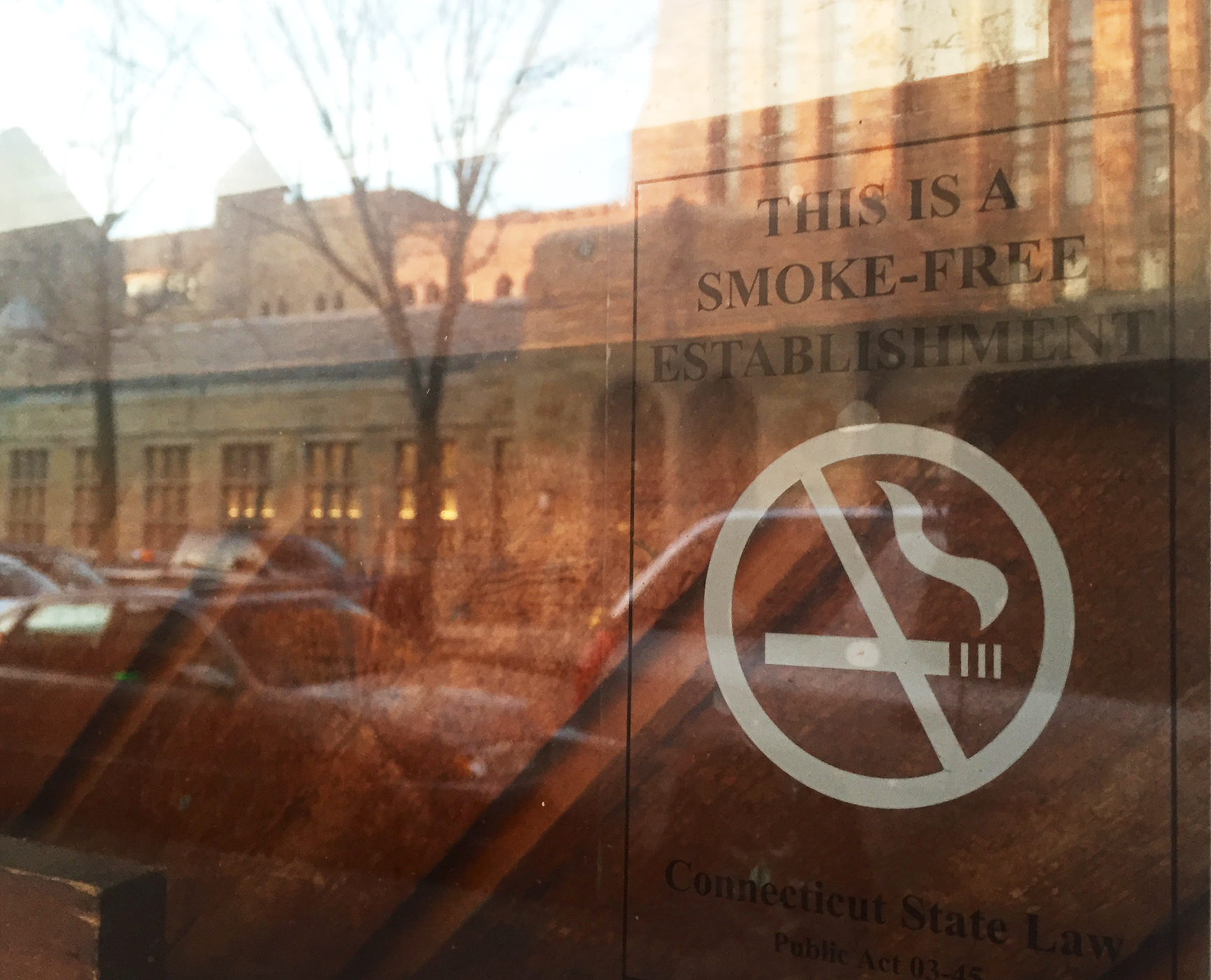
Connecticut legislators are in discussions to potentially raise the state’s smoking age from 18 to 21.
The bill, introduced on Feb. 10 to the Public Health Committee by state Sen. Mae Flexer, D-Killingly, and Rep. Tim Ackert, R-Coventry, would limit the purchase of all tobacco products, including e-cigarettes and vaporizers to individuals above age 21. While some opponents worry about the bill’s fiscal impact or infringement on personal freedoms, advocates insist that the bill’s public health benefits outweigh any cost.
“I don’t want the state to make money off of the poor health choices of individuals,” Ackert said. “I’d rather have the state make money off of people working hard, giving income tax and buying things.”
Nicotine addiction starts at a young age, Ackert said, emphasizing that nearly 90 percent of tobacco users began smoking before they were 21.
While Ackert acknowledged the decrease in smoking over the last few decades, he said raising the smoking age would hasten the decline while also improving public health and overall air quality.
Howard Forman, a Yale professor of diagnostic radiology, economics and public health, agreed that slowing the adoption of smoking by raising the smoking age could have favorable long-term health consequences, but noted that the bill proposed is not without flaws.
“The disadvantage of this policy is that it takes personal responsibility away from individuals who have, arguably, many responsibilities as adults in every other way,” Forman said. “It is also a policy that will likely cause many individuals — buyers and sellers — to act outside the law.”
He added that if adjoining states maintain 18 as their legal smoking age, then Connecticut residents could purchase tobacco products elsewhere. On top of reducing the bill’s health benefits, this would lower Connecticut’s state tax collections, he said.
However, Adler said the bill does not intend to punish 18- to 20-year-old smokers who purchase nicotine products across state lines.
“If you’re selling [cigarettes] to other people to make money, then there’s a penalty to that,” Ackert said. “But this isn’t about penalizing people, this is about a health choice to reduce the amount of people that chose to smoke at a younger age.”
Mayor Toni Harp applauded legislators’ efforts in the General Assembly to reduce tobacco use in Connecticut. She noted the addictive nature of cigarette smoking, adding that tobacco use causes many serious heart and lung issues.
“It’s healthier to simply separate people, especially young people, from tobacco in the first place,” Harp said.
Nonetheless, Forman highlighted potential backlash from libertarian and conservative legislators who could see the bill as a risk to commerce or an unnecessary intrusion of government on personal freedom. Other opponents, Forman added, may argue that if an 18 year old can enlist in the army, then an 18 year old should have the right to smoke.
“That argument holds no weight to me,” Ackert said. “I’m a veteran, and I didn’t join the military for the right to smoke or drink. I joined to serve my country. My answer to this would be: Raise the age to join the military to 21.”
While tobacco smoking offers substantial fiscal benefit, Connecticut’s bordering states must work together to create more effective tax policies, Forman said. He added that along with age requirements, educational policies can discourage smoking.
According to the American Lung Association, Connecticut received over $517 million from the federal tobacco settlement tax and tobacco sales tax in the 2017 fiscal year, but spent nothing on cessation programs.
“We’re taking millions of dollars, and we don’t advertise,” Ackert said. “If you look at other areas of the country, they advertise heavily to stop people from smoking.”
In addition to advertising, Ackert highlighted the importance of educating children in the environmental effects, health hazards and social impact associated with smoking. He said political ideology should not influence such an important health decision.
The current bill is a bipartisan effort. Even though Ackert is a Republican, he said he will continue to work closely with Flexer on pushing the bill forward.
Regardless of whether the proposal is slow to pass, Ackert believes the effort is worthwhile, even if its passage requires gradual implementation. For instance, the smoking age could move to 19 in one year, to 20 in the next and then finally to 21.
The Public Health Committee will decide by March 23 whether to take action on the bill.







